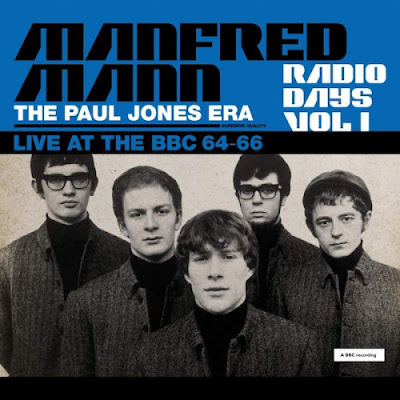
As of now, one of the most underrated bands of the British Invasion is Manfred Mann. They had hits in the United States (Do-Wah-Diddy-Diddy) but made a more significant presence in the U.K. and Europe during the years 1963 to 1966. The original line-up of Manfred Mann was great, due to certain aspects of the band. For one, the musicianship is top-notch, and besides being blues-based, they also had a strong jazz orientation to Manfred Mann's (the individual) skills with the keyboard, specifically the organ. Mike Hugg, their drummer, is very jazz orientated in his playing, and there is a lightness in this touch on the percussion instruments that make their sound unique at the time. The other source of their greatness is their frontman and vocalist Paul Jones. He's exceptional. Jones could sing the blues (in a British manner) but also a superb pop ballad vocalist as well as a good songwriter. The fact for a brief second he was the lead singer of The Rolling Stones, is no joke. Still, the strength of all musicians is that they are schooled in the roots of modern blues and jazz, but was a pop band as well.
If one takes the long approach, there are three chapters in the Manfred Mann's (the band) narrative. The Paul Jones era then came a different singer and writer Mike D'Abo (who sort of looked like Paul Jones, but more pop orientated), and then Manfred Mann Chapter 3, which turned into Manfred Mann's Earth Band. All bands including Mike Hugg, their drummer, and a songwriter as well.
This album focuses on the Paul Jones era, and there are many delights on this greatest hits collection. Of course, the fantastic "Do-Wah-Diddy-Diddy" which is so thrilling and happy sounding, that its simplicity is almost zen-like happiness wrapped in a song. "Pretty Flamingo" is the other classic pop single by the Manns, and that I believe features the talents of Jack Bruce on bass. The other element that is part of the puzzle of this band is Mann's instrumentals, which their very first single "Why Should We Not" is very noir sounding, and there is that Manfred Mann's world perhaps in Soho London. I can easily imagine Francis Bacon hearing this song on some jukebox in a Soho bar sometime in the early 1960s.
Manfred Mann did a lot of covers, but one thing that they had a strong focus on is Bob Dylan. I think Manfred Mann shared the same song publisher, so he was able to hear Dylan demos or music sheets before anyone else, and therefore I think they were one of the great interpreters of Dylan's music at the time. Paul Jones to me was the perfect singer for Dylan's early material. And if not mistaken, Dylan was a fan of the band. Nevertheless, this is a super enjoyable collection.












